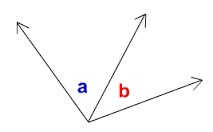记忆方法
将“adjacent”拆分为两部分:“ad-”和“jacent”。想象“ad-”是接近的意思,而“jacent”听起来像“just sit”,即“坐”的意思。将两部分结合,想象成某人正坐在一个相邻的位置,以此来记忆“adjacent”表示“相邻的”这个含义。
以上内容由AI生成, 仅供参考和借鉴
中文词源
adjacent 临近的
前缀ad-, 去,往。词根jac, 扔,同project. 扔在旁边的, 相邻的。
英语词源
- adjacent
-
adjacent: [15] Adjacent and adjective come from the same source, the Latin verb jacere ‘throw’. The intransitive form of this, jacēre, literally ‘be thrown down’, was used for ‘lie’. With the addition of the prefix ad-, here in the sense ‘near to’, was created adjacēre, ‘lie near’. Its present participial stem, adjacent-, passed, perhaps via French, into English.
The ordinary Latin transitive verb jacere, meanwhile, was transformed into adjicere by the addition of the prefix ad-; it meant literally ‘throw to’, and hence ‘add’ or ‘attribute’, and from its past participial stem, adject-, was formed the adjective adjectīvus. This was used in the phrase nomen adjectīvus ‘attributive noun’, which was a direct translation of Greek ónoma épithetos.
And when it first appeared in English (in the 14th century, via Old French adjectif) it was in noun adjective, which remained the technical term for ‘adjective’ into the 19th century. Adjective was not used as a noun in its own right until the early 16th century.
=> adjective, easy, reject - adjacent (adj.)
- early 15c., from Latin adiacentem (nominative adiacens) "lying at," present participle of adiacere "lie at, border upon, lie near," from ad- "to" (see ad-) + iacere "to lie, rest," literally "to throw" (see jet (v.)), with notion of "to cast (oneself) down."
权威例句
- 1. The schools were adjacent but there were separate doors.
- 这些学校紧挨着,但各自独门独户。
- 2. The planes landed on adjacent runways.
- 这些飞机在毗连的跑道上降落。
- 3. These young students live in adjacent rooms.
- 这些年轻的学生住在毗连的房间里.
- 4. We work in adjacent rooms.
- 我们在毗邻的房间里工作.
- 5. The house adjacent to ours is under repairs.
- 与我家相邻的房子正在修缮.
